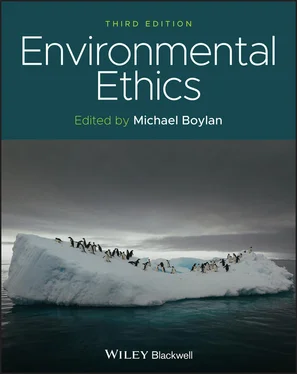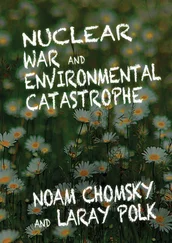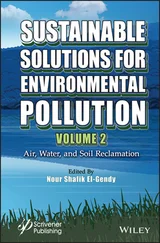Environmental Ethics
Здесь есть возможность читать онлайн «Environmental Ethics» — ознакомительный отрывок электронной книги совершенно бесплатно, а после прочтения отрывка купить полную версию. В некоторых случаях можно слушать аудио, скачать через торрент в формате fb2 и присутствует краткое содержание. Жанр: unrecognised, на английском языке. Описание произведения, (предисловие) а так же отзывы посетителей доступны на портале библиотеки ЛибКат.
- Название:Environmental Ethics
- Автор:
- Жанр:
- Год:неизвестен
- ISBN:нет данных
- Рейтинг книги:4 / 5. Голосов: 1
-
Избранное:Добавить в избранное
- Отзывы:
-
Ваша оценка:
- 80
- 1
- 2
- 3
- 4
- 5
Environmental Ethics: краткое содержание, описание и аннотация
Предлагаем к чтению аннотацию, описание, краткое содержание или предисловие (зависит от того, что написал сам автор книги «Environmental Ethics»). Если вы не нашли необходимую информацию о книге — напишите в комментариях, мы постараемся отыскать её.
Environmental Ethics,
Environmental Ethics
Environmental Ethics
Environmental Ethics — читать онлайн ознакомительный отрывок
Ниже представлен текст книги, разбитый по страницам. Система сохранения места последней прочитанной страницы, позволяет с удобством читать онлайн бесплатно книгу «Environmental Ethics», без необходимости каждый раз заново искать на чём Вы остановились. Поставьте закладку, и сможете в любой момент перейти на страницу, на которой закончили чтение.
Интервал:
Закладка:
418 400
419 401
420 402
421 403
422 404
423 405
424 406
425 407
426 408
427 409
428 410
429 411
430 412
431 413
432 414
433 415
434 416
435 417
436 418
437 419
438 420
439 421
440 422
441 423
442 424
443 425
444 426
445 427
446 428
447 429
448 430
449 431
450 432
451 433
452 434
453 435
454 436
455 437
456 438
457 439
458 440
459 441
460 442
461 443
462 444
463 445
464 446
465 447
466 448
467 449
468 450
469 451
470 452
471 453
472 454
473 455
474 456
475 457
476 458
477 459
478 460
479 461
480 462
481 463
482 464
483 465
484 466
485 467
486 468
487 469
488 470
489 471
490 472
491 473
492 474
493 475
494 476
495 477
496 478
497 479
498 480
499 481
500 482
501 483
502 484
503 485
504 486
505 487
506 488
507 489
508 490
509 491
510 492
511 493
512 494
513 495
514 496
Notes on Contributors
Wilfred Beckermanformerly of University College London, London, UK (deceased)
Frederick BirdUniversity of Waterloo, Waterloo, Canada
Murray Bookchinformerly of Ramapo College of New Jersey, Mahwah, USA(deceased)
Michael BoylanMarymount University, Arlington, USA
Randall CurrenUniversity of Rochester, Rochester, USA
Herman E. DalyUniversity of Maryland, College Park, USA
Geert DemuijnckEDHEC Business School, Roubaix, France
Stephen GardinerUniversity of Washington, Seattle, USA
Alan Gewirthformerly of the University of Chicago, Chicago, USA (deceased)
Michael GoldsbyWashington State University, Pullman, USA
Ben HaleUniversity of Colorado, Boulder, USA
Garrett Hardinformerly of the University of California, Santa Barbara, USA (deceased)
Ruth IrwinUniversity of Aberdeen, Aberdeen, UK
Dale JamiesonNew York University, New York, USA
Carl KockIE University, Madrid, Spain
Avery KolersUniversity of Louisville, Louisville, USA
Aldo Leopoldformerly of the University of Wisconsin–Madison, Madison, USA (deceased)
David E. McCleanRutgers University, New Brunswick, USA
Carolyn Merchantformerly of the University of California, Berkeley, USA
Seumas Millercurrently holding positions at Delft University of Technology, Delft, The Netherlands; Charles Sturt University, Bathurst, Australia; University of Oxford, Oxford, UK
Arne Naessformerly University of Oslo, Oslo, Norway (deceased)
Bryan NortonGeorgia Institute of Technology (Georgia Tech), Atlanta, USA
Onora O’Neillformerly of the University of Cambridge, Cambridge, UK
Tom Reganformerly of North Carolina State University, Raleigh, USA (deceased)
Holmes Rolston IIIformerly of Colorado State University, Fort Collins, USA
Mark SeabrightWestern Ontario University, London, Canada
Peter SingerPrinceton University, Princeton, USA; and University of Melbourne, Melbourne, Australia
James P. SterbaUniversity of Notre Dame, Notre Dam, USA
Brian K. SteversonGonzaga University, Spokane, USA
Paul W. Taylorformerly of Brooklyn College, City University of New York, New York, USA (deceased)
Wanda TeaysMount Saint Mary’s University, Los Angeles, USA
Janna Thompsonformerly of La Trobe University, Melbourne, Australia
Steve VanderheidenUniversity of Colorado, Boulder, USA
Karen J. WarrenMacalester College, St Paul, USA
Mary Anne Warrenformerly of San Francisco State University, San Francisco, USA (deceased)
Barbara WienAmerican University, Washington, DC, USA
Preface to the Third Edition
In 2007 when I was a senior research fellow at the Center for American Progress, a progressive policy think tank in Washington, DC., I spent some time on the Environmental Policy Team. This team had as it goal the creation of various papers that would be listed on the Center’s website and be distributed to appropriate committees in Congress to influence public policy.
At the time it did seem like the country and the world was on the way to combatting the causes of global warming: CO 2and other chemical emissions that were creating a “greenhouse” effect that was moving us to climate disaster. In 2009 there was the Copenhagen Climate Change Conference in which plans were laid for creating a cooperative international structure for implementing some of the policy recommendations of the Kyoto Protocol (1997). 1Progress was made to identify options for various countries to play their part in this project (the details to be negotiated later) and a goal was set to respond to climate change in the short and long term. To this end, a “red line” was established to avoid allowing the average global temperature to rise 2° Celsius above pre-industrial levels.
Procedurally, developed countries like the United States (US) promised certain levels of funding so that the goals might be achievable for poorer countries. Methods of measurement were agreed upon and finally there were new agencies created under the auspices of the United Nations to help administer and monitor these goals.
At the Center for American Progress there was general hope that we were finally on the road that would lead us to our goal of halting global warming and thus averting the climate disaster that we all saw as imminent.
Not everything worked out as planned, so in 2015 a new gathering of nations in Paris tried to address means of getting to the goals of the Copenhagen Conference more effectively. Each nation was to work on a 5-year plan that would be evaluated in 2020 and be legally binding (though voluntary). Benchmarks were to be set out at first provisionally and then in a more binding format.
The Paris Agreement provides a framework for financial, technical, and capacity building support to those countries who need it. I was no longer at the Center for American Progress, but from those former colleagues there was even more general hope that we had fixed the difficulties involved with Copenhagen and that this time things would be different. The new short-term targets were “zero-net-emissions.” 2This mindset could be achieved by each unit of national organization: individuals, communities, businesses, and the nation. Everyone could get on board to avoid the 2° Celsius red line.
Then came the 2016 US presidential election of Donald J. Trump. Trump believed that the climate crisis was all a hoax. It would cost the US (one of the leading polluters in the world) lots of money and be bad for business by creating onerous regulations. (Little regard was given to how catastrophic climate disaster would affect US business—but if the whole thing is a hoax, then there will never be a disaster.) Such assertions were not backed up by science. Indeed, science has been behind the international summits that have been regularly occurring since 1972 in Stockholm.
Читать дальшеИнтервал:
Закладка:
Похожие книги на «Environmental Ethics»
Представляем Вашему вниманию похожие книги на «Environmental Ethics» списком для выбора. Мы отобрали схожую по названию и смыслу литературу в надежде предоставить читателям больше вариантов отыскать новые, интересные, ещё непрочитанные произведения.
Обсуждение, отзывы о книге «Environmental Ethics» и просто собственные мнения читателей. Оставьте ваши комментарии, напишите, что Вы думаете о произведении, его смысле или главных героях. Укажите что конкретно понравилось, а что нет, и почему Вы так считаете.












